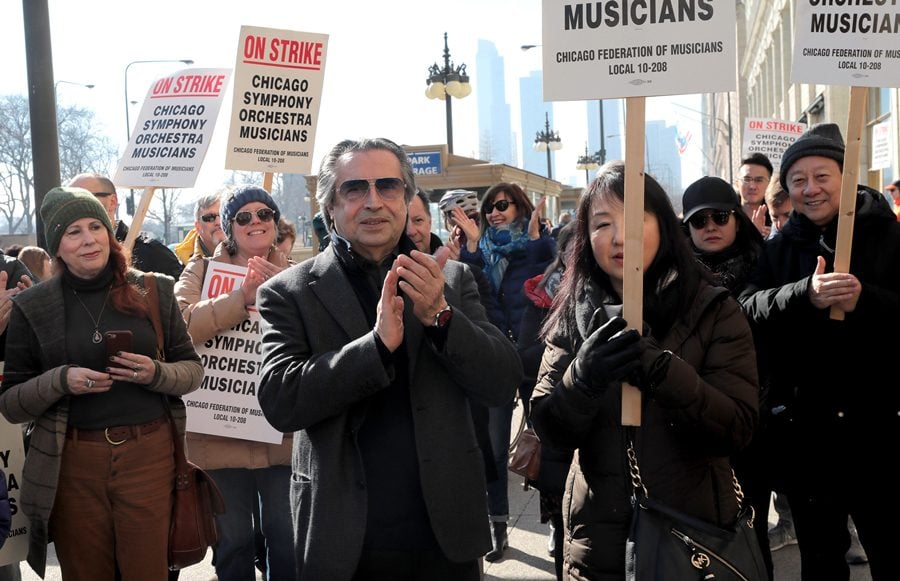Chicago Symphony Orchestra musicians end strike, get increased pay but not desired pension
Credit: Antonio Perez/Chicago Tribune/TNS
After nearly seven weeks, the Chicago Symphony Orchestra ended their strike after negotiations.
May 22, 2019
After a historic strike of nearly seven weeks, the musicians of the Chicago Symphony Orchestra are trading their picket signs for pension and pay.
A year of negotiations came to a close April 26, when the Chicago Symphony Orchestra Association (CSOA) and its musicians reached a five-year agreement with the symphony — a pact that includes higher wages and a new pension plan. Annual salary raises over the next five years will amount to a minimum salary of $181,272 in the contract’s final year, a 14 percent increase from the 2017-2018 base salary.
“The Chicago Symphony Orchestra has been a cultural treasure for this community for 128 years,”Helen Zell, chair of the CSOA’s Board of Trustees, said in a news release. “This new agreement reflects the excellence of the Orchestra and ensures that the musicians receive the outstanding compensation they deserve, while securing their and the CSOA’s long-term financial sustainability through the retirement plan transition.”
The musicians’ free concert series, which came to Northwestern University last month, was “key” to reaching the agreement, the musicians’ negotiating chair Steve Lester told Salon Media Group. CSO violinist and Northwestern adjunct associate professor Blair Milton said the free concerts contributed to negotiations.
Milton said the outpouring of appreciation from audience members across the Chicago area demonstrated to the CSOA that there is “tremendous” support for the musicians. He added that the musicians had the opportunity to perform for people who haven’t been able to hear their music because of the commute or price.
“While there were a lot of our regular subscribers who showed up to those concerts, there were a lot of people that came up to us and said this was the first time they’d ever heard the orchestra,” Milton said. “We managed to reach a lot of new ears that way.”
While the musicians will be unpacking other logistics in the upcoming months, Milton said they did not win their big battle: the pension plan. Although any pay raise is welcome, he said, it should not be viewed as an offset against the “negative of the pension loss.” Milton also said he does not think pay has adjusted fairly alongside inflation.
Under the previous Defined Benefit Pension Plan — the norm among top orchestras — employee benefits were decided by a formula that took into account aspects such as length of employment. The new pension agreement, a Defined Contribution Retirement Plan, requires employees to put money into an account funding their retirement. The CSOA has guaranteed that musicians’ retirement benefits under the new plan will be the same as they were under the old plan, though it won’t necessarily extend to its new members.
“The main issue that we were hoping to accomplish was to secure a pension guarantee for our newest members and for future members,” Milton said. “And on that point, we pretty much lost that battle.”
Bienen first-year Henry Girard emphasized that it would be difficult for these conversations between the musicians and management to take place if CSO musicians were not in a union,. He said the outcome gives him “some hope.”
Having cancelled several official symphony orchestra performances due to the strike, Milton said the musicians always regret depriving audiences of their music.
“We’re really glad to be back playing our concerts,” Milton said. “That’s what we do and what we do best.”
Email: [email protected]
Twitter: @pamesjollard


